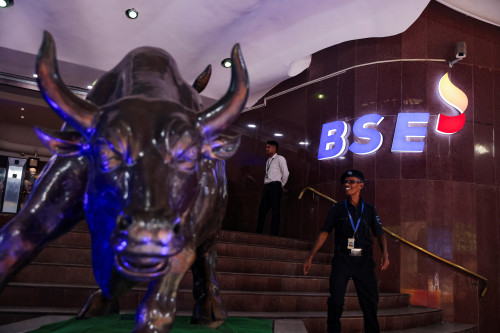By Marc Jones
LONDON (Reuters) – Investors piled into emerging market countries’ debt to the tune of $45 billion and bought up $2 billion of Chinese stocks in January, a closely followed report from the Institute of International Finance showed on Tuesday.
The trade body cited how markets were being buffeted by the plans of returning U.S. President Donald Trump to reshape the global order, as well as the continuing evolution of artificial intelligence.
Emerging market countries saw a $35.4 billion ‘net inflow’ of international money in January although there was sharp divergence between debt and stocks, the report showed.
Debt flows surged to $45 billion, including $8.1 billion into China where interest rates have been falling due to its ongoing economic strains.
Equities struggled overall in emerging markets, suffering $11.5 billion of outflows not including China, which enjoyed $2 billion of inflows.
The divergence between debt inflows and equity outflows underscores “the continued investor preference for the relative stability of fixed-income instruments amid persistent geopolitical uncertainty, U.S. monetary policy risks, and global economic headwinds,” the IIF said.
The data covered January but MSCI’s main emerging market stocks index showed a sizeable rally took off around the middle of the month.
Since then, that index has climbed nearly 10% and the emergence of the DeepSeek AI tool has helped top Chinese tech stocks like Baidu, Alibaba and Tencent surge 30%, 62% and 40% respectively.
The selling elsewhere in emerging markets was “exacerbated” by a contrasting selloff in U.S. ‘Big Tech,’ the IIF estimated.
The correlation between emerging market credit spreads and U.S. tech equities has tightened significantly in recent years, with a 91.2% correlation between broad EM credit spreads and the Nasdaq 100.
The report also pointed blame at the “renewed protectionist measures from the Trump administration, particularly the imposition of tariffs on a range of sectors.”
India has been most impacted, with foreign investors pulling more than $20 billion from its stocks since October, when Trump’s election win started to look more likely. South Korea and Taiwan stocks also saw outflows exceeding $1 billion each.
Emerging market debt remained strong, however. January saw total debt inflows of $45 billion, with EM ex-China attracting $36.8 billion and China adding $8.1 billion.
The resilience of emerging market local currency debt was “particularly notable” the IIF said, citing continued foreign demand for bonds in Brazil, India, and Poland.
Emerging market central banks maintaining relatively high interest rates will make “EM debt an attractive carry trade” the IIF said, if U.S. rates stay as high as expected.
(Reporting by Marc Jones; Editing by Bernadette Baum)


